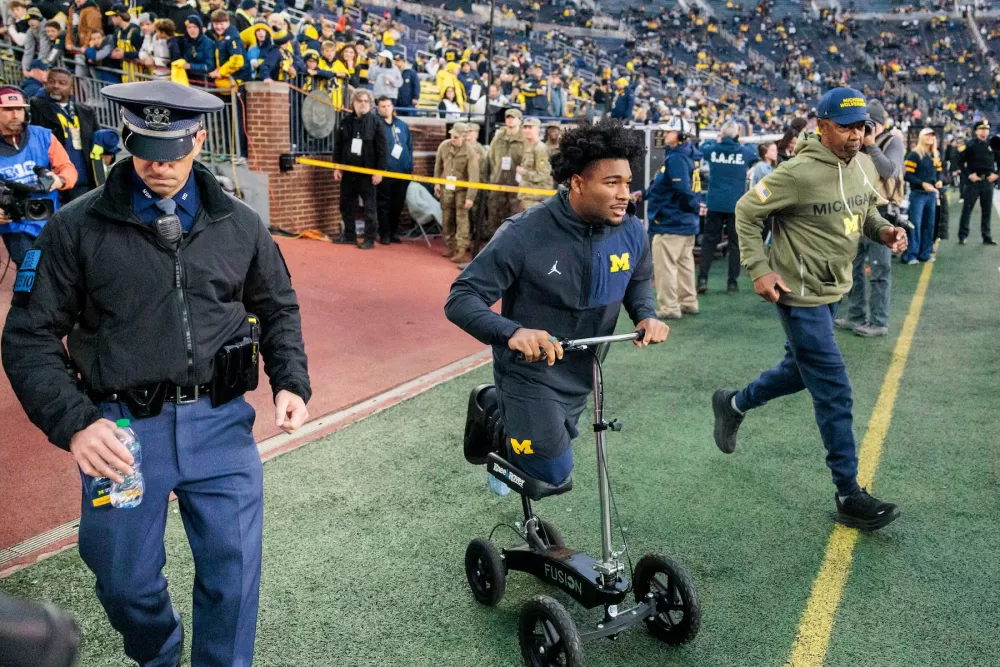The Endless Game: When Baseball Defies the Clock and Tests Human Limits
Share- Nishadil
- November 02, 2025
- 0 Comments
- 4 minutes read
- 47 Views

Beyond the Ninth: The Epic Marathons of Baseball History
Ever wondered how long a baseball game can truly go? Dive into the incredible tales of endurance and drama from the sport's most legendary extra-inning marathons, including a World Series clash that pushed everyone to their absolute limits.
You know, there's just something inherently dramatic about baseball, isn't there? It’s a game of rhythm, of strategy, and perhaps most importantly, of the clock — or rather, the lack of one. Unlike basketball or football, baseball doesn't simply run out of time; it plays until a winner emerges. And sometimes, just sometimes, that process stretches on, and on, and on, turning a regular afternoon into an epic, unforgettable marathon.
Think about it for a moment: how long could a game possibly last? Hours, sure. But days? Well, in truth, the professional record for the sheer longest baseball game ever played belongs to a minor league contest, a legendary battle that truly pushed the boundaries of human endurance. We're talking about the Pawtucket Red Sox and the Rochester Red Wings, who squared off back in 1981 in a contest that, you could say, became an instant classic. They played a staggering 33 innings – a full two games, really – over the course of two calendar days, a mind-boggling 8 hours and 25 minutes of actual playing time. Players were literally falling asleep in the dugout; it was wild.
Now, shifting to the big leagues, Major League Baseball has its own tales of unbelievable longevity. For pure innings, the record dates all the way back to May 1, 1920. Can you imagine? The Brooklyn Robins (yes, the Dodgers before they were the Dodgers) faced off against the Boston Braves, and what unfolded was a relentless 26-inning stalemate. It ended in a 1-1 tie, believe it or not, simply because the sun set and the umpires had no choice but to call it due to darkness. It makes you wonder what would've happened if they had stadium lights back then, doesn't it?
But innings aren't the only measure of a grueling game, are they? Sometimes, the sheer duration is what sticks with you. And for that, we look to May 8, 1984, when the Chicago White Sox and the Milwaukee Brewers slugged it out for a marathon 8 hours and 6 minutes. It took 25 innings to finally decide that one, a testament to the stubbornness and tenacity of both sides. That's longer than a transatlantic flight, just for a baseball game!
Yet, for many, the ultimate test comes on the grandest stage of all: the World Series. And here, the undisputed king of endurance is Game 3 of the 2018 Fall Classic between the Los Angeles Dodgers and the Boston Red Sox. Picture this: it’s late October, the tension is palpable, and these two titans battle it out for a ridiculous 18 innings. That’s double the standard game, stretching a seemingly endless 7 hours and 20 minutes into the early hours of the next morning. Every pitch was a moment, every out a small victory. It wasn't until Max Muncy, in a moment that felt destined, launched a walk-off home run into the night that the exhausted fans and players could finally, finally, breathe. Honestly, you had to be there to truly grasp the sheer willpower on display.
These are more than just numbers, you see. These games become legends, etched into the collective memory of the sport. They push players to their physical and mental breaking points – imagine a pitcher throwing more pitches than they ever thought possible, or a position player standing in the field for half a day. They test managers' strategic depth, their ability to pull rabbits out of hats with dwindling bullpens and exhausted lineups. And for the fans? Well, for the fans, it's a unique kind of shared experience, a collective act of faith and patience that pays off with an unforgettable, often absurd, memory. It's truly baseball at its most raw, most human, and, you could say, most beautiful.
Disclaimer: This article was generated in part using artificial intelligence and may contain errors or omissions. The content is provided for informational purposes only and does not constitute professional advice. We makes no representations or warranties regarding its accuracy, completeness, or reliability. Readers are advised to verify the information independently before relying on







